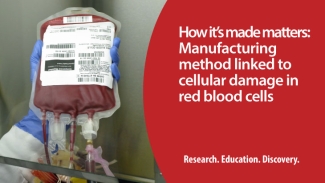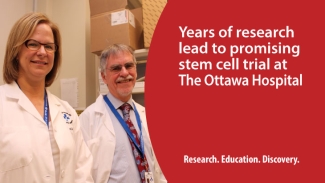When a person is in dire need of blood, a blood transfusion seems like a simple solution. A donor donates blood, and eventually a patient in need receives it. Yet, in reality this life-saving medical procedure, as safe as it may be, is not that simple.
Transplanting organs, tissue or stem cells from one person to another saves lives. It was not easy to figure out what facilitates a healthy and successful transplant though. Efforts over a long time reveal the complexity of the procedure and that very specific circumstances are required. As researchers’ understanding of the immune system improved, so did the success rate of transplants.
Researchers show that some methods used in the manufacturing of red blood cell units may be less damaging to the cells, which could reduce adverse reactions in transfusion recipients. This work may impact the future of how blood is collected in North America and around the world.
Led by The Ottawa Hospital, a groundbreaking trial called Cellular Immunotherapy for Septic Shock is testing the idea that mesenchymal stem cells may be able to help control the body’s immune system to reduce injury and promote healing, while improving its ability to fight infection.



